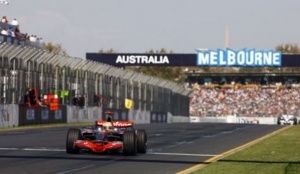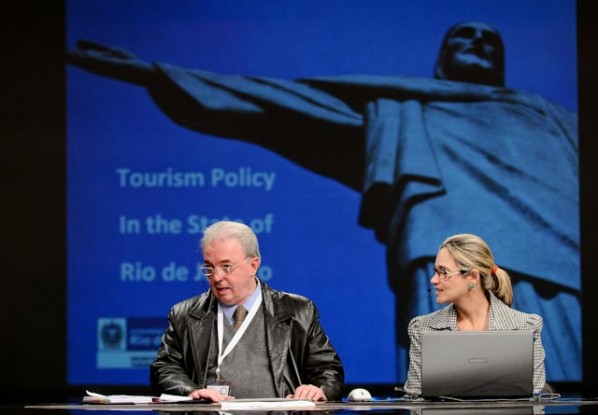Australia in sport tourism drive

Australia has highlighted the power of sport tourism as integral to its tourism industry, led by events such as the Formula 1 Grand Prix. BTN takes a closer look at how the nation is harnessing sport to attract a global audience.
Over 300,000 visitors recently flocked to Melbourne to witness the country’s top motor sport event, the Formula 1 Australian Grand Prix.
This was an ideal opportunity to showcase Melbourne to a global audience, as leafy Albert Park was transformed into a racing hub with a sleek 5.3km circuit, against the backdrop of the city’s skyline.
As a sector, tourism contributes $33 billion in GDP, or 2.6 percent of Australia’s total GDP. Tourism is the country’s largest services export earner and provides around half a million jobs.
The International Tourism Trade Fairs Association (ITTFA) recently highlighted the importance of sports tourism specifically, examining how it has grown from niche market to multi-billion dollar business.
The UNWTO also actively positions sport and mega-events in national tourism development strategies in order to maximize their potential as a driver of growth and development.
“Sport and tourism bring people together in many unimaginable ways and can play a major part as instruments of change,” said UNWTO Secretary-General, Taleb Rifai.
This was demonstrated when Australia played host to two Olympic Games, in Melbourne in 1956 and Sydney in 2000. In Melbourne 67 nations and more than 3,000 athletes competed in the Games. Over 1.3 million tickets were sold to the public during the event and 110 000 tickets were sold overseas.
Sydney’s Homebush Bay was redeveloped for the 2000 Games, followed by the Paralympic Games. Sydney generated £1.2 billion additional business following the 2000 Olympic Games.
Tourism has dramatically increased and media coverage to the value of an astonishing £2.5 billion was achieved. International Olympic Committee President Juan Antonio Samaranch described the Sydney Olympics as ‘the best ever’.
Other important sporting events that have been held in Australia include The Commonwealth Games, involving athletes from 71 nations. Australia has also hosted world cups and finals of many sports, including cricket, rugby, netball, swimming, tennis and various football codes, the 2003 Rugby World cup final saw over 70,000 England fans arrive in Sydney. The Melbourne Cup is one of the world’s premier horseracing events, attracting up to 120,000 spectators and broadcast to a large international audience
Major fixtures on the international sporting calendar in Australia include a grand slam tennis open, one of the world’s great horse races, and grand prix for motorcycles and racing cars. Australian sports events are held at high quality venues where fans can support their teams in an enjoyable, safe and friendly environment.
Despite being beaten by Qatar and Russia for their pitch to host FIFA 2018 and 2020, there are plenty of events for sporting enthusiasts to enjoy.
Different sports attract fanatical support, both at the event and from spectators back home, and there are both economical and social benefits on a national and regional level from hosting sports events, including the revenue generated from the visiting sportsmen and women, their support teams and their supporters.

(The inaugural WSDE, hosted in Johanessburg during the final week of the World Cup)
Not only are there the direct benefits of the money spent to provide these events and the money spent those participating, but there are the indirect benefits of increased employment in providing the services, new and improved infrastructure, accommodation, amenities and the growth and development that continues as a result of such events.
Sport Tourism is travel industry’s fastest growing sector, and contributed an astonishing 14 percent of overall travel and tourism receipts in 2010, according to WSDE Sport Tourism Expo, the only global exhibition and business forum dedicated to showcasing the full spectrum of Sport Tourism related products and services.
At a time when some traditional tourism trends are in decline, Sport Tourism continues to flourish and is set to grow exponentially in the next decade.
Yet the complex mechanics of Sport Tourism have not yet been fully understood or realised. The annual WSDE Sport Tourism Expo aims to present the future business deals and source new contacts and markets, but also to gain invaluable insights from the advanced knowledge of market leaders.
Now in its second year, WDSE Sport Tourism Expo will take place in Bangkok, Thailand - Asia’s Sport Tourism Gateway - from 27-29 September 2011.

